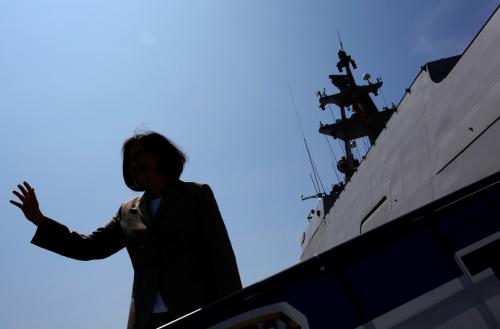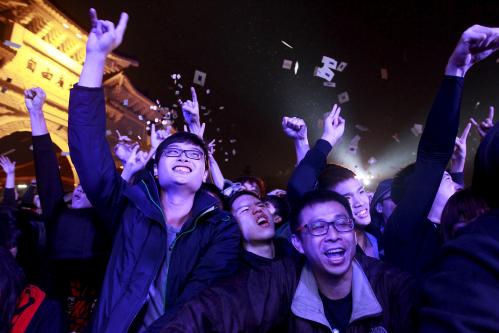This article originally appeared in the Routledge Handbook of Contemporary Taiwan.
Any small state that is located in a complex neighborhood will have to struggle to ensure even a modest measure of security. By virtue of its size, the small state will have fewer resources than larger states, both relatively and absolutely. Because its challenge is structural in character it must demonstrate great skill in mobilizing the resources it has and then deploying them effectively to reduce the dangers of predation by others. It must remain constantly alert to changes in circumstances and then adapt quickly and nimbly. The security challenge faced by the Republic of China (ROC) on Taiwan, with its complex history and unique political character, is probably unique. This chapter first elaborates generically on the quest for security, then reviews how the ROC regime has sought to enhance it in the key periods of its history, and then assesses current and future challenges.
Richard Bush provides an overview of Taiwan’s historical security environment and central foreign policy strategies from certain periods, from Japan’s invasion of Manchuria in the 1930s to the election of President Tsai Ing-wen in January 2016. He discusses the varying political views of Taiwanese people regarding engagement of the People’s Republic of China (PRC) and in turn analyzes how Taiwan’s defense policy is shaped by three primary factors: geographical proximity to China, Chinese policy, and U.S. security commitment. Bush concludes that as Chinese military capabilities have improved across the board, Taiwan’s overall threat environment has deteriorated. In view of this deteriorating threat environment, Taiwan has had to face the pressing question of whether and how its defense strategy of extending space for time needs to change in response.
Finally, the article addresses two ways in which the U.S. security commitment to Taiwan may shift with time and changing geopolitical conditions. First, U.S. grand strategy could shift as the United States prioritizes stable relations with an increasingly powerful China. The second way a significant change in Taiwan’s security situation could occur stems from changes in the military capabilities of China and the United States and, as a result, how a war in East Asia would be fought. The United States could reduce this capabilities race by withdrawing or scaling back commitments to American allies and friends in the Western Pacific. Fortunately for Taiwan, neither of these fundamental changes has occurred, but they have begun to enter discussions surrounding U.S. security policy.
The Brookings Institution is committed to quality, independence, and impact.
We are supported by a diverse array of funders. In line with our values and policies, each Brookings publication represents the sole views of its author(s).






Commentary
Taiwan’s security policy
August 3, 2016